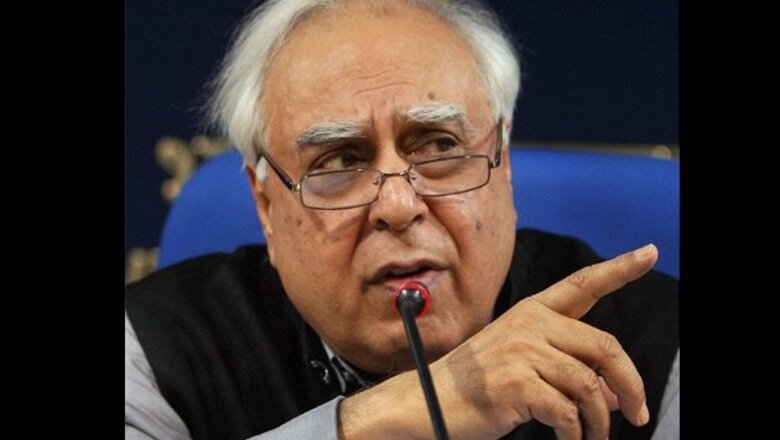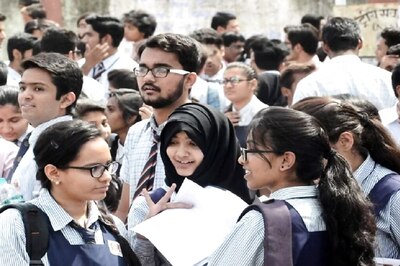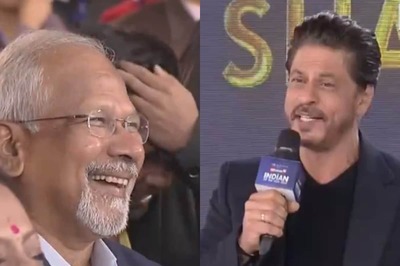
views
New Delhi: The government on Wednesday announced the new telecom policy (NTP) allowing operators to hold higher spectrum, pay uniform license fee across services besides permitting liberal merger and acquisition, with a view to provide quality services at affordable prices.
Announcing a part of policy, Telecom Minister Kapil Sibal told a press conference that "the prescribed limit on spectrum assigned to a service provider will be 2x8 MHz (paired spectrum) for GSM technology for all service areas other than Delhi and Mumbai where it will be 2x10 MHz (paired spectrum)."
Current prescribed limit is 6.2 MHz of GSM spectrum. However, players would be free to acquire additional frequency beyond the prescribed limit, in the open market, should there be an auction of spectrum subject to the limits prescribed for merger of licenses.
When asked about the impact of new norms announced on Wednesday on subscribers, he said users should get better services and at affordable rates due to more efficient usage of spectrum.
All spectrum would be delinked from the licence from now, he said, adding that a decision on pricing of spectrum or one-time charge for extra spectrum held by some incumbent operators would be taken later in view of the Supreme Court judgement that cancelled 122 2G licences issued in 2008.
He also announced a uniform licence fee of eight per cent of Adjusted Gross Revenue (AGR) across services and circles as compared to range of 6-8 per cent now. Licence fee is a levy paid by all operators as the annual fee.
On renewal of licenses, Sibal said the renewal of licence would be done for 10 years.
Besides, he also announced a liberal merger and acquisition regime in the sector allowing upto 35 per cent market share for the merged entity while taking note of Trai's recommendation to consider market share upto 60 per cent.
He said a decision would be taken soon in this regard. The government also has removed distinction between wireline and wireless service for determining market share for M&A deals.
Welcoming the announcement, country's largest private telecom player Bharti Airtel said the move is an "encouraging step from the point of view of the long-term health of the telecom industry and will pave way for consolidation in an over-crowded market".
The new policy also allows spectrum sharing between operators in the same circle. However, sharing would not be permitted among licensees having 3G spectrum.
The country's largest telecom operator Airtel said that spectrum sharing will be deterred in case there are high spectrum usage charge.
"The higher spectrum usage charge, which is applied on the total spectrum held by both the operators, will act as a deterrent to sharing. We hope the government will review this," it added.
Telecom Secretary R Chandrashekhar said that all decision which involves charging of spectrum in any form will be decided later.
"There are separate details that have to be worked out related to pricing or charging of spectrum in any form. Action on it will be announced at appropriate time," he said.
GSM operators lobby, COAI, said the announcement was in line with expectations. "Though most recommendations are as per Trai recommendations, we are disappointed with the uniform licence of 8 per cent. We don't see any rationale and we had hoped it would have been lower," COAI General Secretary R S Mathews said.
At present, access service providers (Telecom companies) are charged a license fee of 10 per cent in the Metros and category A areas, 8 per cent in category B areas and 6 per cent in category C areas.
Bharti Airtel said that uniform licence fee should be kept at 6 per cent against proposed 8 per cent.
Mathews also expressed dissatisfaction on the reduction in licence term from 20 years to 10 years. "Telecom industry is an investment heavy sector and we had recommended 20 years as we think 10 years is a short duration," he added.
As per the new policy, telecom operators would have to pay Rs 2 crore (for metros and A circles), Rs 1 crore (B circles) and Rs 50 lakh (C circles) for extension of their existing licences till the time guidelines for new licensing regime are not finalised.
Sibal said Trai would undertake regular audit to review the usage of available spectrum.
Spectrum trading however hasn't been allowed. "Spectrum trading will not be allowed in India, at this stage. This will be re-examined at a later date," he said.
A decision on the recommendation to bring IP-I Service Providers under licensing regime, who are currently unlicensed passive infrastructure providers, has been deferred for further examination.
The Minister said DoT will also conduct a rapid comprehensive techno-economic study to examine issues relating to increase in coverage and tele-density in rural areas while ensuring sustained quality of service.
At present there is a recommendation that telecom service provider should be incetivised directly by reduction in licence fee for services in rural area.
DoT will also examine the adequacy of USOF mechanism alone to achieve these objectives and the need for augmenting USOF schemes with appropriate direct incentivisation of operators for rural rollout.



















Comments
0 comment